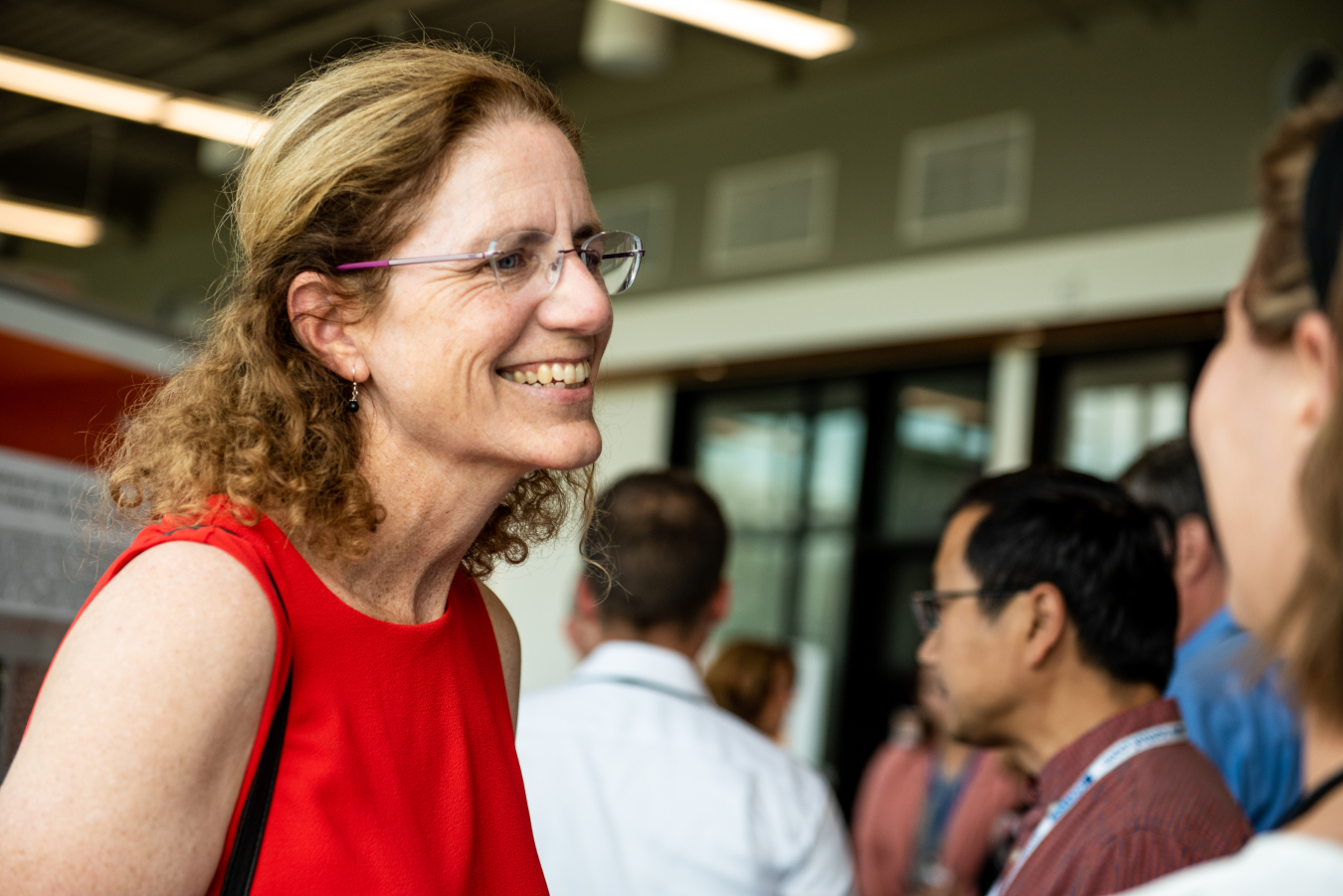Learn why Dr. Karen Wahl loves her job as a laboratory fellow and bioanalytical chemist at Pacific Northwest National Laboratory.
December 2, 2019
As a laboratory fellow and bioanalytical chemist at Pacific Northwest National Laboratory (PNNL), Dr. Karen Wahl leads and develops analytical approaches to identify and characterize unknown biological materials. Her interdisciplinary biochemistry and chemistry research includes using known chemicals’ characteristics and behaviors to identify unknown chemicals in unknown mixtures. She has a B.A. in chemistry from the College of Wooster, a Ph.D. in analytical chemistry from Michigan State University, and a Post Doc appointment at PNNL.
What inspired you to work in STEM?
I went to college thinking I’d go into medicine like my father and grandfather. I didn’t like the memorization of biology, but I found I could interpret things without memorizing in chemistry. I could start problem solving from the very first class. I remember one experiment where we did measurements to prove what was in a sample. We used a stepwise process to answer questions about the way that the chemicals reacted, and we could decipher what they were. I loved it. I didn’t know about national laboratories or graduate school when I started. I found that later.
What excites you about your work at the Energy Department?
I love solving real problems and developing methods that are needed. I love the opportunity to work across multiple disciplines and bring very different scientists together to think through problems from all of our different perspectives and knowledge. Bringing different scientific disciplines together to solve the many challenging problems we are faced with is fun and exciting and continues to challenge you as a scientist as different problems arise in the world.
How can our country engage more women, girls, and other underrepresented groups in STEM?
We can give them the confidence to accept that they enjoy STEM. It’s not always culturally acceptable to enjoy math or science early. For example, my mom was told she’d be bad at math, and she was told not to go outside and dig in the dirt like she wanted to. I’m glad my parents encouraged me to pursue whatever I wanted to learn. The environment and support where people grow up makes a difference. The community can help in many ways by providing mentors and opportunities to appreciate learning and be inquisitive. I believe kids are born that way, and we need to not squelch the curiosity and interest in both boys and girls. We need to help people see they can be proud that they’re good at or interested in science. STEM outreach helps with that. It gives kids opportunities to experience science, where they feel like they can belong, where they don’t have to hide their natural curiosity.
Do you have tips you'd recommend for someone looking to enter your field of work?
You need a good foundation in basic sciences like chemistry and biology. While you’re getting that foundation, work on building a network and using that network. Don’t be shy about building your network. Challenge yourself to come into meetings or go to technical conferences. Don’t always mingle with the people that you know. At least once a day, start up a conversation with someone new. It’s hard for everybody to reach out. You’re not alone. In practice, the social skills are very important. You need to know how to read and write and communicate orally. I thought I could hide from those things in science, but I’ve come to see how essential they are. Learn how to communicate and express your ideas clearly.
When you have free time, what are your hobbies?
I love outdoor activities, including dog-walking, biking, snowboarding, hiking, and boating.
Learn more about our programs & resources for women and girls in STEM at /women

